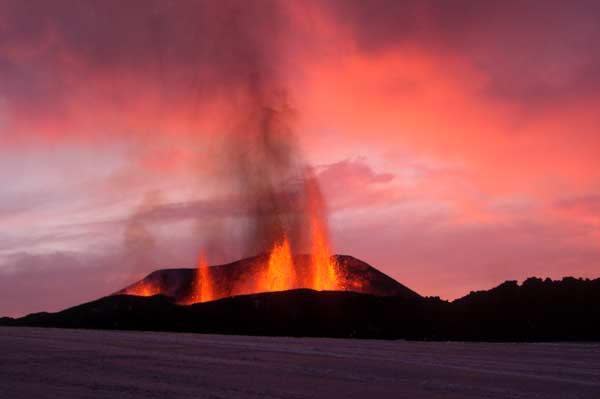 Science and Weather
Science and WeatherIs another Icelandic volcano getting ready to erupt?

The Icelandic volcano, Hekla, is causing a bit of worry lately, and News of Iceland is reporting that, as of Tuesday, authorities there have declared a 'Civil Protection State of Uncertainty'.
Hekla is a nearly 1,500 m-tall 'stratovolcano' in southern Iceland, that has apparently been called the 'Gateway to Hell' by Europeans since the Middle Ages.
According to the News of Iceland report:
"The State of Uncertainty means that surveillance is increased and precautionary measures are taken. Declaring a State of Uncertainty is standard procedure to insure official communications and flow of information. It is also issued to put emergency teams on stand by. This step is the first of three steps, and only considered to be a warning."
[ More Geekquinox: Magnitude 5.5 earthquake shakes southern Mexico ]
The website earthquake-report.com is saying that the warning was issued due to several small tremors — measuring less than 1 on the Richter scale — that have been felt around the volcano over the past two weeks.
While 'micro-earthquakes' like these aren't anything unusual, as millions of them are felt around the world every year, Martin Hensch, an earthquake expert with the Icelandic Met Office told News of Iceland that this "is quite unusual activity in the volcano".
"We are not very worried that an eruption is going to take place, but predicting an eruption in Hekla volcano is nearly impossible. The last time the volcano erupted we only knew it one hour in advance." he added.
The last time Hekla erupted was on February 26th, 2000, which reportedly lasted for 12 days and produced a 15 km-long ash cloud.
[ More Geekquinox: It’s Tsunami Preparedness Week. Are you prepared? ]
The last big eruption from an Icelandic volcano was on April 14th, 2010, when Eyjafjallajökull spewed forth ash and smoke that shut down air traffic over Europe for over a week, and continued to cause delays and cancellations well into May.
Geek out with the latest in science and weather.
Follow @ygeekquinox on Twitter!


